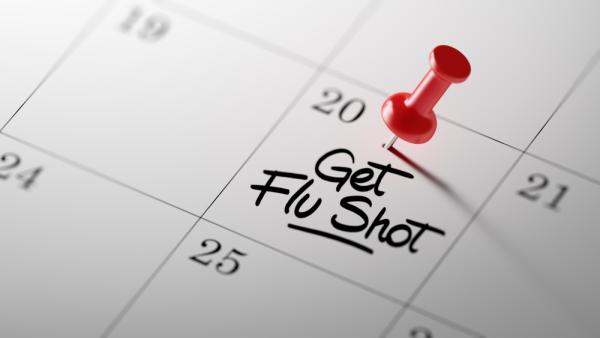
Flu season is not here yet - but flu shot season is. Pharmacies such as CVS and Walgreens are running massive ad campaigns letting us know that they have plenty of flu shots and now is the time to come in and get one. But, it seems as though every year, the push for flu shots gets earlier. With ads starting in September, will flu shots become one of those errands lumped in with school supply shopping and other back to school errands? Next year, will we be thinking about flu shots while sitting by the pool?
Pharmacists started their first formalized training for vaccine administration over 20 years ago, in 1994. (1) Now that pharmacies are regularly distributing vaccines, their push to get people in for shots is not entirely in the interest of public health. Rather, they are betting on the customer picking up something else while in the store. And, with the CDC recommending, since 2010, that every person older than six months receive a flu vaccine, that is a lot of people coming through their doors.
But, has their competition made the push for the flu vaccine too early?
That is a tough question to answer. There are two factors to consider that are moving targets - making it difficult to say, exactly, when is the best time to get the flu vaccine.
The first is that flu "season" is not clearly defined. There is a lot of variation, from one year to another, in when cases occur - starting as early as October and lasting as late as May. However, when the data over the years are compared, the brunt of the flu season is, primarily, during February and March.
The second factor is how long the immunity from the vaccine lasts in our bodies. When a person is vaccinated, the immune system goes through many steps to produce antibodies specific to the flu, taking one to two weeks to develop full immunity. The amount of protection from the flu depends on the amount of antibodies circulating in the body. So, waiting to get the vaccine until flu season is in full swing is a bad idea. You want to have those antibodies ready and waiting before you get coughed on in the subway.
However, not only does it take time to develop antibodies, but, they also don't last forever. Therefore, getting vaccinated too early runs the possible risk that there won't be enough antibodies left to protect you when you get coughed on in the subway (getting coughed on in the subway is inevitable.)
It has been said for years that the best time to get the flu shot is between Halloween and Thanksgiving. With the widespread timing of flu season and the unknown duration of antibodies, it's hard to say whether a few weeks will make a difference. But, if you are older (80% - 90% of flu-related deaths occur in people older than 65) it's probably best to stick to the standard recommendation of November and have as many of those antibodies at the ready come February. But, if it the choice is getting the flu shot now or letting it drop down on your "things to do" list until it falls below "organize closet".... go out and take care of it. Oh - and be sure to pick up a bottle of shampoo while you're there.
Footnote:
(1) Tom Frieden, MD, MPH, (55 years old) director of the US Centers for Disease Control and Prevention (CDC) received his flu vaccine on Sept. 29th during a press conference stating, "Getting a flu vaccine is important for all of us, for our own protection and for the protection of those around us who may be more vulnerable to flu, such as young children, people with certain chronic health conditions and the elderly," says Dr. Frieden. "Flu can strike anyone and it can strike hard. I'm getting vaccinated today and I ask that you join me."
References:
(1) Hogue MD, Grabenstein JD, Foster SL, Rothholza MC, Pharmacist involvement with immunizations: a decade of professional advancement. J Am Pharm Assoc (2003). 2006 Mar-Apr;46(2):168-79.



